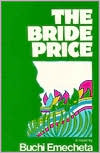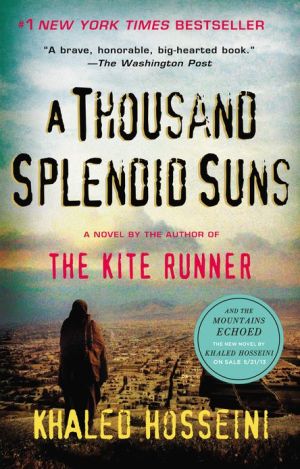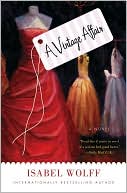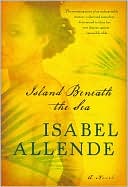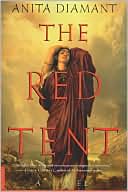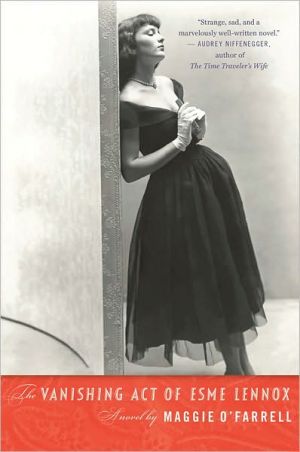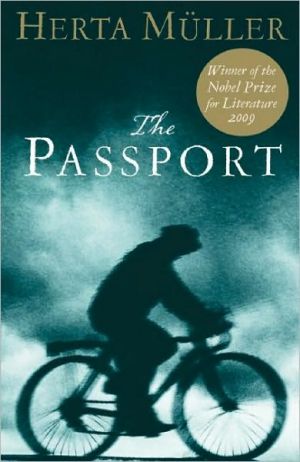Bride Price
First published in 1976, this great literary classic follows a young Nigerian woman who rejects the patriarchal traditions of her culture to find love and happiness in the western world. With pure honesty and subtle protest, Buchi Emecheta chronicles the unfair pressure and ultimate demise that women often suffer in Nigerian lore.\ The Bride Price is the poignant love story of Aku-nna, a young Igbo woman, and her teacher, Chike, the son of a prosperous former slave. As their tribe begins to...
Search in google:
A Nigerian girl is allowed to finish her education because a diploma will enhance her bride price, but she then rebels against traditional marriage customs.BiographyBorn of Ibo parents in Nigeria, Buchi Emecheta is widely known for her multilayered stories of black women struggling to maintain their identity and construct viable lives for themselves and their families.She writes, according to The New York Times, with "subtlety, power, and abundant compassion." Her numerous novels include The Slave Girl, The Family, Bride Price, and The Joys of Motherhood.
THE BRIDE PRICE\ a novel\ \ \ By Buchi Emecheta\ \ George Braziller\ Copyright © 1976 Buchi Emecheta.\ All rights reserved.\ ISBN: 080760951X\ \ \ \ \ Chapter One\ \ \ The Bride Price\ \ \ Aku-nna fitted the key into the keyhole, turned it this way and that, pushed open the whitewashed door, then stood there, very still. For right there in the middle of the room was their father, staring back at them, wordlessly. He stood there, hat in hand, properly khakied in his work clothes and looking very much like a guilty criminal caught stealing.\ Aku-nna and her brother Nna-nndo stepped inside their one-room apartment, still staring at him, mutely demanding explanation. You ought to be at work, their silent gazes seemed to be saying. You ought not to be here; you ought to be at the Loco yard with your mates, not here standing in the middle of the room scaring us so. But if their father had any explanations to make, he was biding his time.\ The boy Nna-nndo was eleven. He was tall for his age, with the narrow build of his mother. At school he had just started to use ink and this he was determined to let everybody know. Writing with ink was to him an academic achievement, for though he was very clever at other arts he was very slow in book work. His fingers were always smeared with ink; it oozed from its bottle onto his hands, some onto his khaki school uniform. Some he even rubbed on his close woolly curls, and if you asked him why he did that, he would reply: "Ink makes my hair blacker." He had a good sense of burnout, just like their mother, Ma Blackie.\ Ma Blackie was a giant of a woman. She was so tall and straight that her few enemies called her "the palm-tree woman". Her jet black skin had earned her the nickname "Blackie the Black" when she was a little girl, and nothing about her had changed much now that she had a family of her own. In fact her blackness was even glossier. So her neighbours and friends added the respectful title "Ma" to her name, and she became "Ma Blackie" not only to her children but to all. If you came down to Akinwunmi Street and said you were looking for a "Ma", which title many women shared, your informer would probably ask, "Could it be that you mean Ma Blackie?"\ But Ma Blackie, though always laughing and loudly cheerful, had a family problem. She was very slow in getting herself pregnant again. Since her husband returned from Burma, when the war ended some five years before, she had not been pregnant like other wives whose husbands had gone abroad to fight Hitler. Her husband, Ezekiel Odia, had sent her to all the native doctors he could afford in Lagos, but still no more children. He even encouraged her to join the Cherubim and Seraphim sect. These people babbled their prayers to God in a frenzied kind of way, but to no avail. Ma Blackie was not pregnant. In despair she decided to go home to their town, Ibuza, to placate their Oboshi river goddess into giving her some babies.\ While Ma Blackie was in Ibuza recharging her fertility, Aka-nna and Nna-nndo were left to take care of themselves and their father. Ezekiel Odia, whom they often called "Nna", the Ibo word for father, was to keep his job at the Loco yard where he worked as a head moulder. This position of responsibility had been given to him out of respect for the fact that he had been to the war, and he guarded it with his very soul. He would wake very early each morning, bustling himself about their one room, waking everyone else up, in his haste dropping this, picking up that, shouting for the other in his little voice. In size he was a little man, too, and people wondered how he had come to marry such a giant of a woman. The answer maybe was that like most Ibo men of his generation he had taken his wife when she was still a young girl; the trouble with Ezekiel's bride was that she seemed never to stop growing. However, such natural imbalance did nothing to disrupt the marriage. All it did was to make Ezekiel Odia acquire a funny way of standing on his toes when making a point.\ So on this particular day when his two children had sped home from school, expecting to be greeted by an empty room as usual. they were stunned to see him, standing there flat on his feet, in the centre of the room, his eyes bloodshot, with tiny red wormlike criss-crosses in them. He was nervously twisting and retwisting his old felt hat, uncertain still of what he was going to tell his children and of how to begin.\ Aku-nna came closer to him. She was only thirteen, but she had realised quite a while before that all was not well in her family. Many a time she had heard other women living in the same compound make songs of her Ma Blackie's childlessness. She had heard over and over again her Ma Blackie and her Nna quarrelling over this great issue of childlessness. Nna would go on and on, talking in that small, sad voice of his, telling Ma, reminding her. that he had had to pay double the normal bride price before he was able to take Ma as his wife. He would work himself up, his little voice whining like a hungry dog's, and then drawing himself up on tiptoe, maybe hoping to add to his stature by so doing, he would remind Ma Blackie that having paid this heavy bride price he had had their marriage sanctified by Anglicanism. And what had he to show for it all — an only son!\ Aku-nna knew that she was too insignificant to be regarded as a blessing to this unfortunate marriage. Not only was she a girl but she was much too thin for the approval of her parents, who would rather have a strong and plump little girl for a daughter. Aku-nna just would not put on weight, and this made her look as if she was being starved; but she simply had not the kind of healthy appetite her brother Nna-nndo had. And that was not the end of the disgrace she was showering on her family. If a child at the other end of Akinwunmi Street had chicken-pox, Aku-nna was bound to catch it; if someone else at the bottom of the yard had malaria, Aku-nna would have her share too. For her it was forever a story of today foot, tomorrow head, the day after neck, so much so that her mother many a time begged her to decide once and for all whether she was going to live or die. One thing Ma Blackie could not stand, she said over and over again, was a "living dead", an ogbanje.\ Ezekiel Odia often pitied his daughter, particularly because she took more after him than his Amazon of a wife. She was small, Aku-nna was, not so much in height as in bone structure, and she was not at all dark, her skin that kind of pale brown colour one gets after putting too much milk in chocolate. Her eyes were large like her father's, but open and translucent; their brownness always had a special glow when she was happy and excited and when she was sad the glimmer disappeared. She had not developed the red criss-crosses which her father had in the whites of his eyes, but Ezekiel knew that, except for the fact that she promised to be a fairly tall woman, his daughter was his very image. He had named her Aku-nna, meaning literally "father's wealth", knowing that the only consolation he could count on from her would be her bride price. To him this was something to look forward to.\ Aku-nna on her part was determined not to let her father down. She was going to marry well, a rich man of whom her father would approve and who would be able to afford an expensive bride price. She would have her marriage first of all solemnised by the beautiful goddess of Ibuza, then the Christians would sing her a wedding march — "Here comes the bride" — then her father Nna would call up the spirits of his great, great-grandparents to guide her, then after all that, and only after all that, she would leave her father's house.\ But on this hot day, when the sun was pouring its merciless fire onto the unprotected heads of children coming home from school, when the heat was so intense that the ground looked as though it had been cooked and then baked, when the heat ate its way through the shoeless feet of Africans padding their various ways to their various destinations, when the air was so still, so waterless, so juiceless, that perspiration had to pour from the bodies of humans to neutralise the temperature — Aku-nna forgot all thoughts of her bride price, and felt a kind of closeness to which she could not give name binding her to her father. She moved nearer to him, and watched a big bead of perspiration working its way, snake-like, down the bridge of Nna's nose; reaching the wide part where his nose formed two black, funnel-like nostrils, this big stream of perspiration hesitated for a while, then, just like the great River Niger breaking into tributaries, divided into tinier strands. One or two of the tiny strands dropped onto Nna's mouth. He did not lick them, but wiped them away.\ Then he spoke, his voice very thick: "They want me to come to the hospital to see to my foot. I shall not be long. I shall be back for the evening meal."\ The children looked down at their father's ailing foot. That stupid foot. Aku-nna thought to herself, always gave her father a great deal of trouble. It was the effect of the war. That much she had been told by many of their relatives, especially old Uncle Richard who had been to the war as well. But he was more communicative than their father. Uncle Richard told the children that the white British could not bear the swamp in Burma and India and so they made West African soldiers stand in for them. Their father was lucky to come back alive, he told the children, because many African soldiers died, not from Hitler's bombs but from the conditions they were subjected to. They were either eaten up by the mosquitoes in the Burmese jungle or bitten up by water snakes in India. Aku-nna did not know which of these calamities had actually beefallen her father, but one of his feet had a nasty scar that had healed badly and this foot had a way of getting swollen at any change in weather. It had been plastered over, it had been injected with many medicines by the railway doctor, it had been prayed upon, but it still swelled up at odd times. Now the leg had started to cause Nna pain again and this strain showed however much he tried to hide it. There was a slight swelling in the other foot, too, but both feet were shod in a pair of khaki work shoes and did not look at all bad compared to the way they usually were during the rainy season. So why did Nna seem so unhappy? If all he was going to do was to go to the hospital on Lagos Island for a check up, and if he would be back for the evening meal, then why was he looking so guilty, so disturbed?\ Aku-nna did not ask her father this aloud, but the thought was there in her mind, muddled but persistent. She sighed with relief, though, that there was no cause for alarm. Nna would be back for the evening meal. If she had been a grown-up she would have scolded him, saying, "But you scared us so! Standing there as if you have seen a ghost." However in Nigeria you are not allowed to speak in that way to an adult, especially your father. That is against the dictates of culture. Despite that, some little maternal instinct in her told her that he could do with a bit of reassurance. She was now so close that she could touch him.\ She laid her small hand on one of his and said. "I'm going to make you Nsala soup, very hot, with lots of pepper, and the pounded yam I shall prepare to go with it will be lumpless. So, Nna, hurry back home to eat your evening meal hot. I know you don't like it cold."\ Nna smiled. His reddened eyes focused on his daughter, the corners of the eyes formed small wrinkles and his white teeth gleamed. For a while the woebegone expression on his sick and bloated face disappeared.\ "Thank you, my little daughter, but don't boil more yams than you can pound. That odo handle is too heavy for you. Don't do too much pounding." He picked up his felt work hat, which he had put on a chair, and adjusted it on his shaved head, pulling the brim down a little in front of his eyes and then padding the sides into shape. "The key to the big cupboard is in my grey trousers — you know, the ones hanging on the hook on the wall. If you want any money, you take it from the big cupboard, but be very careful how you spend it, because you have to make it go a very long way."\ If the children thought to themselves, "But you'll be coming back in time for the evening meal tonight," they were now too frightened to say. For not only would it be rude, but also Nna's face, after his brief smile, had assumed the finality of a closed door. He became brisk, just like someone preparing for a final departure. His hands, blackened by years of working in the railway foundry, touched this and that, picking things up and putting them down again. He told them to be good children to their mother and to respect all adults. He told them that they should try to be a glory to his name, because he cared for them, because they were his life.\ Eventually Nna came to the door, saying that he had to go now. Then he added: "Always remember that you are mine."\ His small lips were shaking and he pressed them together as if he was trying desperately to hold himself from crying. Involuntarily, as if hypnotised against their will, the children drew nearer. their young eyes following the movements of their father's eyes. which by now had grown so big that they seemed to be standing out in relief on his black forehead rather than inside his head. He acted as if in a hurry. He patted Nna-nndo on his inky head, touched Aku-nna slightly on the cheek and went out of the door.\ The children followed him, wanting to beg him to wait, to explain what it all meant, this secrecy, these valedictory sighs, this sadness. But Nna did not wait. He hurried as though the gods were calling him, as though the call was imminent and he must answer or be damned.\ The children stood there on the veranda, holding the pillars for support, cooling their hot cheeks on the cemented surfaces, and simply stared.\ Nna crossed the untarred road in front of their house, his brown canvas shoes making grating sounds on the red hot pebbles. A mammy-wagon lumbered its way from the other end of the street, groaning under the weight of the timber tied on its back. The timbermen, who held onto the big ropes with which the timber was tied, groaned with the wagon, perspiring profusely on their shiny, naked backs. As the wagon rumbled past it blew up a cloud of dust in its wake, covering Nna up. He did not turn to see if his children were watching him, he just went on. The dust from the lorry obscured him completely, and when at last it cleared it seemed to have eaten him up, just as that prophet Elijah in the Bible was eaten up in his chariot of fire.\ The road soon cleared. Its red colour snaked between the one-storey houses and came to an abrupt end in front of the big house known locally as The Club.\ The children watched the emptiness of the road for a while, felt some pangs of hunger and decided that it was time they went in to eat.\ "Always remember that you are mine," Nna had told them. \ \ \ Excerpted from THE BRIDE PRICE by Buchi Emecheta. Copyright © 1976 by Buchi Emecheta. Excerpted by permission. All rights reserved. No part of this excerpt may be reproduced or reprinted without permission in writing from the publisher. \ \ \ \
